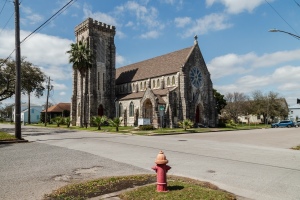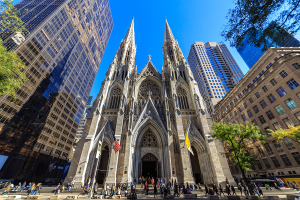Arkansas Judge OKs Atheist Bus Ads; Christians Fight Back
Bus Billboards: A Battle Ground for Believers
An organization of nontheistic groups says it won a victory after a federal judge Thursday ruled in their favor allowing them to run ads on city buses in Arkansas.
The Central Arkansas Coalition of Reason, which consists of nontheistic groups, including atheists, agnostics, and others of no religion, claims the Central Arkansas Transit System (CATA) and the On the Move Advertising agency are discriminating against the group.
Coalition members are accusing the transit system and the agency of accepting ads from churches but refusing to run ads paid for by atheists and agnostics.
“It is a violation of our rights to free speech to require the coalition to pay tens of thousands of dollars to put $5,000 worth of ads on 18 buses,” coalition members said in the lawsuit.
The group claims it met resistance when seeking to advertise its existence in the area. The giant bus ads are aimed at attracting local atheists and agnostics to join the coalition.
In the hearing Thursday, U.S. District Judge Susan Webber Wright instructed CATA to accept more than $5,000 worth of ads from the coalition.
The queen-sized ads say "Are you good without God? Millions are." The bus billboards also direct people to the Central Arkansas CoR website at www.CentralArkansasCoR.org, inviting them to consider joining any of the groups in the coalition.
Such bus ads, as well as billboards, have been appearing all over the United States since 2008.
"It's only fair that, when religious groups are allowed to advertise on Little Rock buses, atheist and agnostic groups be allowed to advertise as well," said LeeWood Thomas of Central Arkansas CoR.
"The world needs to know that people can be decent human beings without believing in a god or gods."
The lawsuit was actually filed on behalf of the Arkansas group by UnitedCoR, a Washington-based national organization that focuses on bringing together local atheist and agnostic groups into coalitions.
Other groups, including churches, have not been required to pay the fee, which amounts to $36,000 in insurance in case of an attack on the buses by angry Christians, according to the lawsuit.
“Because a handful of similar ads had been vandalized in other states, the ad agency required the payment for insurance reasons,” said Jess Sweere, an attorney representing the transit authority.
However, coalition leaders claim that out of 36 cities, where their ad campaigns have run, only four have been vandalized, including bus ads in Detroit last year, according to UnitedCoR's website.
Despite this argument, the judge's ruling included the issue of liability on the part of the advertising agent, and required the coalition to provide a $15,000 deposit.
Christians in the community are firing back at the court’s decision saying the case has nothing to do with First Amendment freedoms.
Christian groups have created their own series of advertisements to run across city buses, the medium of choice for the battle of beliefs, it seems.
“Any bus that has these ads running across them will be picketed,” said Bill Wheeler, a Christian leader in Little Rock.
“We are planning to create a newsletter and start gathering our resources to fight ads that create chaos in our society. These ads have nothing to do with free speech. It has to do with corruption and pure evil. We will stand tall for our Lord and fight against this decision.”
In the meantime, members of the Russian Orthodox Church recently booked 25 supersize bus advertisements, backed by a sponsorship deal with Russian Hour TV, using the line "There IS a God, BELIEVE. Don't worry and enjoy your life."
The Trinitarian Bible Society is using a line from the Bible to scold nonbelievers: "The fool hath said in his heart, there is no God," runs the advertisement's slogan, taken from Psalm 53:1.
“Christians are all united in their belief in Christ and it will take dedication to combat nonbelievers and their capability to spread discontent,” Wheeler said.
“Of course, it is by our actions and our faith that we will win this battle – not a billboard on a bus.”
CATA, which books a daily ridership of nearly 9,000 people using largely local and federal funds to operate, has not issued a statement.





























